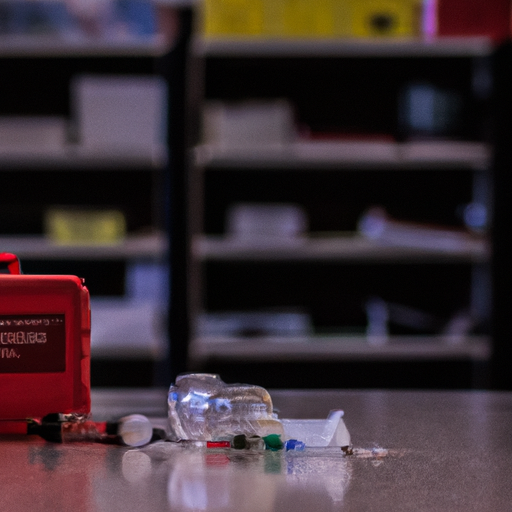Understanding the Canadian Opioid Crisis: Newfoundland’s Proactive Approach
As recorded drug overdoses continue to rise in cities across Canada, the province of Newfoundland and Labrador has decided to take proactive measures in controlling this epidemic. The Department of Health and Community Services has announced that it will be providing naloxone kits to all the schools across Newfoundland and Labrador. These kits contain the medication naloxone, which can swiftly reverse the effects of an opioid overdose, potentially saving lives. This blog post examines Newfoundland’s approach to the Canadian opioid crisis by discussing the effects of the opioid crisis and the efforts taken to combat them.
Impacts of the Opioid Crisis
The opioid crisis has steadily been getting worse each year. An escalating death toll from opioid overdose cases paints a grim picture, but there are far-reaching effects beyond this immediate health crisis:
- Increases in Crime Rates: With the surge in opioid addiction, crime rates have also seen a rise in various parts of Canada. This is largely due to individuals attempting to acquire substances illicitly.
- Struggle for the Homeless: The opioid crisis has deepened the strife for homeless populations, particularly noticed in regions like Quebec. People battling homelessness are more susceptible to falling prey to opioid addiction, thereby escalating the crisis.
- Pressure on Health Systems: The repeated spikes in overdose cases put a severe strain on Canadian health systems, resulting in challenges in providing comprehensive healthcare support to all individuals.
- Economic Costs: The opioid crisis has had economic consequences as well due to increased healthcare costs, lost productivity from workforce, and the resources spent on law enforcement.
Newfoundland’s Naloxone Initiative
In an attempt to confront the opioid crisis, Newfoundland and Labrador’s Department of Health and Community Services is distributing naloxone kits to all schools across the two regions. They are partnering with the Newfoundland and Labrador English School District and the Conseil Scolaire Francophone Provincial. Distribution will commence in the eastern regions, with other areas to follow closely. This initiative has been encouraged and seen as a necessity given that opioids have become increasingly prevalent in schools.
The kits contain naloxone, a medication that can rapidly reverse the effects of an opioid overdose. Naloxone is a non-addictive substance that works by blocking the opioids from attaching to the brain’s receptors, thereby reversing or blocking the effects of opioids. Therefore, in a situation where time is crucial, these kits can potentially save lives.
A Future Fight: Canadian Opioid Abatement Class Action
In addition to these immediate steps, Canada is also witnessing an important legal development – the Canadian opioid abatement class action. The lawsuit involves numerous Canadian municipalities seeking financial compensation from major pharmaceutical companies for their alleged role in propagating the opioid crisis. The funds gained from this lawsuit would be used to mitigate the effects of the opioid crisis, helping the citizens affected by it and enabling preventive measures.
In Conclusion
The destructive wave of the opioid crisis continues to threaten lives and communities across Canada, necessitating quick action and sustained efforts to combat the crisis. Steps like the provision of naloxone kits in Newfoundland and Labrador schools are promising beginnings. They not only provide an immediate solution but also cultivate an environment of preparedness and knowledge surrounding the opioid crisis. Legal proceedings such as the Canadian opioid abatement class action could be instrumental in holding those accountable for the crisis and securing funds for future mitigation strategies.
While these actions are significant, there is a need for continued attention, resources, and strategic planning to curtail the opioid crisis significantly. This includes comprehensive education, treatment facilities, supportive environments for those in recovery, social initiatives for populations most affected, and better regulatory practices regarding prescription drugs. The opioid crisis is not a battle that can be won overnight but through concerted effort, it is a crisis that Canada can overcome.
